|
| |
| FIRST ANNUAL IAAC LITERARY FESTIVAL |
in collaboration with The South Asia Institute,
Columbia University and India Abroad
NOVEMBER 7-9, 2014
|
|
|
November 8th -
Session 2A
Mira Nair, Mohan Sikka.
Moderated by Vibhuti Patel |
| From Page to Celluloid: Adapting books for the big screen |
 |
|
Mira Nair |
 “Toofani”, Hindi for "whirlwind", is an apt nickname for internationally acclaimed Indian director, screenwriter, and producer Mira Nair who is known for her visually dense films thatpulsate with life. “Toofani”, Hindi for "whirlwind", is an apt nickname for internationally acclaimed Indian director, screenwriter, and producer Mira Nair who is known for her visually dense films thatpulsate with life.
Nair is the rare prolific filmmaker who fluidly moves between Hollywood and Independent Cinema. After several years of making documentary films, Mira Nair made a stunning entry onto the world stage with her debut feature film Salaam Bombay! (1988). Now hailed as a classic, the film has received more than 25 international awards, including an Academy Award nomination for Best Foreign Language Film in 1988, the Caméra d’Or Award at the Cannes Film Festival. Her second film, Mississippi Masala (1991) won three awards at Venice. Since, Nair made films such as The Perez Family (1993), Kama Sutra: A Tale of Love (1996), My Own Country (1998), The Laughing Club of India (1999). In 2001, Monsoon Wedding, won the Golden Lion at the 2001 Venice Film Festival, becoming one of the highest grossing foreign films of all time. Nair then directed the Golden Globe winning Hysterical Blindness (2002). After making William Makepeace Thackeray’s epic Vanity Fair (2004), she directed a film based on Jhumpa Lahiri’s best-selling novel The Namesake (2006). This was followed by the Amelia Earhart biopic, Amelia (2009) starring Hilary Swank and Richard Gere.
Nair is an avid maker of short films, and has contributed to 11.09.01 (2002) in which 11 renowned film-makers reacted to the events of September 11. Other titles include How Can It Be? (2008), Migration (2008), New York, I Love you (2009), and her collaboration with Emir Kusturica and Guillermo Ariaga on a compilation feature Words With God.
Her latest film, The Reluctant Fundamentalist, was a thriller based on the best-selling novel by Mohsin Hamid. It opened the 2012 Venice Film Festival to critical acclaim, and wasreleased worldwide in early 2013.
A long time activist, Nair set up an annual film-makers’ laboratory, Maisha in Kampala, Uganda. Since 2005, young directors in East Africa have been trained at this non-profit facility with the belief that “If we don’t tell our stories, no one else will”. Maisha is currently building a school with Architect Raul Pantaleo, winner of Aga Khan Award for Architecture, and his company Studio Tamassociati.
In 1988 she used the profits from Salaam Bombay! to create Salaam Balak Trust which works with street children in India.
In 2012, Mira Nair was awarded the Padma Bhushan – India’s second highest civilian honor - by the President of India.
|
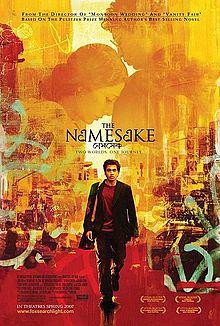
Jhumpa Lahiri |
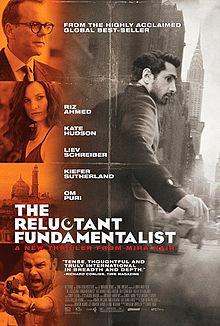
Mohsin Hamid |
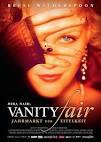
William Thackeray |
| |
|
| |
Mohan Sikka |
 Mohan Sikka won Best Story at the 2014 Screen Awards for the film adaption of his story “The Railway Aunty”, remade as B.A. Pass by debut director Ajay Bahl. “The Railway Aunty” was published in Delhi Noir, part of the renowned urban noir series from Akashic Books brought to India by Harper Collins. Mohan’s story “Uncle Musto Takes a Mistress” won a 2009 PEN/O. Henry Prize. Mohan's fiction and non-fiction looks at the repression and violence that lives under the surface of urban middle-class life. His work has appeared in the journal One Story, the Toronto South Asian Review, Trikone Magazine, Tehelka, Open, National Geographic Traveller (India), and in anthologies in several countries. He is working on a novel and a collection of stories based in Delhi.
Mohan Sikka won Best Story at the 2014 Screen Awards for the film adaption of his story “The Railway Aunty”, remade as B.A. Pass by debut director Ajay Bahl. “The Railway Aunty” was published in Delhi Noir, part of the renowned urban noir series from Akashic Books brought to India by Harper Collins. Mohan’s story “Uncle Musto Takes a Mistress” won a 2009 PEN/O. Henry Prize. Mohan's fiction and non-fiction looks at the repression and violence that lives under the surface of urban middle-class life. His work has appeared in the journal One Story, the Toronto South Asian Review, Trikone Magazine, Tehelka, Open, National Geographic Traveller (India), and in anthologies in several countries. He is working on a novel and a collection of stories based in Delhi.
|
| |
|
| |
Nandita Das |
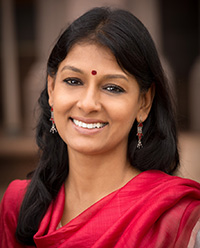 Nandita Das wears many hats and her fiery passion to make a difference is evident in the choices she has made, both professionally and personally. She has acted in over 40 feature films in 10 Indian languages, and in three professional plays. She directed her debut feature, Firaaq, in 2008 that won her much appreciation and accolades in India and abroad. After her Masters in Social Work, she continues to advocate issues of social justice and human rights. Between the Lines marks her debut as a playwright and theatre director. She writes a monthly column called the Last Word, for a national weekly. She was the Chairperson of the Children’s Film Society, India, where she made many big and small changes to revamp the organization. She was on the jury of Cannes Film Festival twice (2005 and 2013). The French Government conferred her with the Knight of the Order of Arts and Letters (Chevalier dans l'Ordre des Arts et des Lettres), their prestigious civilian award. In 2011 Nandita Das was the first Indian to be inducted into the Hall of Fame of the International Women’s Forum. Nandita Das wears many hats and her fiery passion to make a difference is evident in the choices she has made, both professionally and personally. She has acted in over 40 feature films in 10 Indian languages, and in three professional plays. She directed her debut feature, Firaaq, in 2008 that won her much appreciation and accolades in India and abroad. After her Masters in Social Work, she continues to advocate issues of social justice and human rights. Between the Lines marks her debut as a playwright and theatre director. She writes a monthly column called the Last Word, for a national weekly. She was the Chairperson of the Children’s Film Society, India, where she made many big and small changes to revamp the organization. She was on the jury of Cannes Film Festival twice (2005 and 2013). The French Government conferred her with the Knight of the Order of Arts and Letters (Chevalier dans l'Ordre des Arts et des Lettres), their prestigious civilian award. In 2011 Nandita Das was the first Indian to be inducted into the Hall of Fame of the International Women’s Forum.
Nandita is currently a Yale World Fellow 2014, for a 4 month Fellowship, among 16 other emerging global leaders who were chosen from close to 4000 applicants. The mission of the fellowship is to cultivate and empower a network of globallyengaged leaders committed to positive change through dialogue and action. |
| |
|
| |
| Vibhuti Patel |
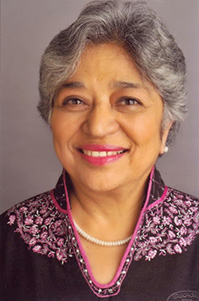 Vibhuti Patel In her 30 years with Newsweek, Vibhuti Patel wrote on arts and culture, interviewed celebrities for the International magazine's backpage, reported cover stories, edited the Letters column and co-anchored the weekly radio show, Newsweek On Air. Outside Newsweek, Vibhuti was a long-time columnist for The Earth Times, published from the U.N. She has freelanced for The Times of India, India Today and Outlook magazine. The New York Times ran her op-ed on Bombay’s 1993 Hindu-Muslim riots. John Kenneth Galbraith wrote the introduction to her book "Mrs. Kennedy Goes Abroad," on miniature paintings depicting the First Lady’s trip to India. She has taught Modern Indian Literature at universities in Doha, Qatar, Cairo, Egypt, and in New York City. Since retiring from Newsweek as Contributing Editor, Vibhuti has been writing for the Wall St. Journal and freelancing for The Hindu and Indian Quarterly. Vibhuti Patel In her 30 years with Newsweek, Vibhuti Patel wrote on arts and culture, interviewed celebrities for the International magazine's backpage, reported cover stories, edited the Letters column and co-anchored the weekly radio show, Newsweek On Air. Outside Newsweek, Vibhuti was a long-time columnist for The Earth Times, published from the U.N. She has freelanced for The Times of India, India Today and Outlook magazine. The New York Times ran her op-ed on Bombay’s 1993 Hindu-Muslim riots. John Kenneth Galbraith wrote the introduction to her book "Mrs. Kennedy Goes Abroad," on miniature paintings depicting the First Lady’s trip to India. She has taught Modern Indian Literature at universities in Doha, Qatar, Cairo, Egypt, and in New York City. Since retiring from Newsweek as Contributing Editor, Vibhuti has been writing for the Wall St. Journal and freelancing for The Hindu and Indian Quarterly. |
| |
|
|
|

